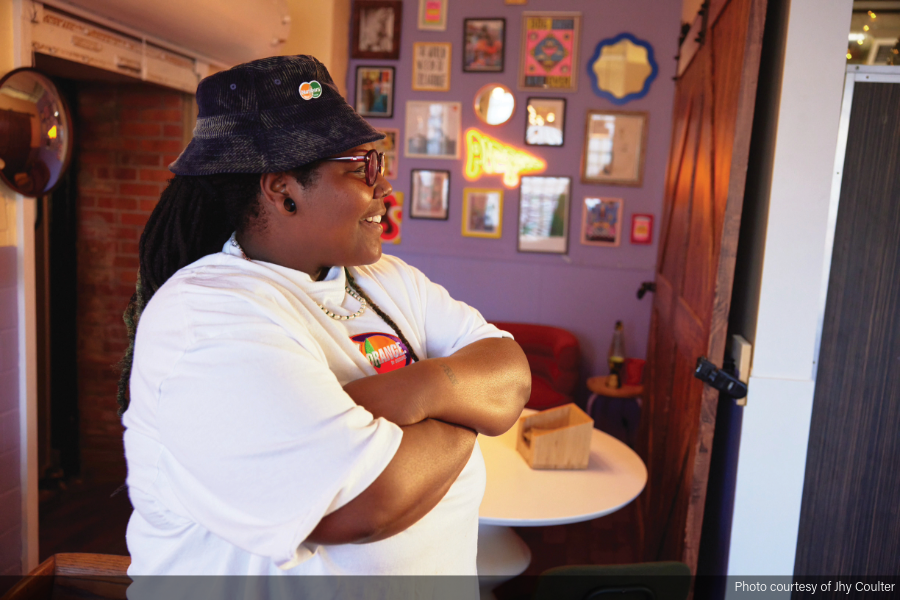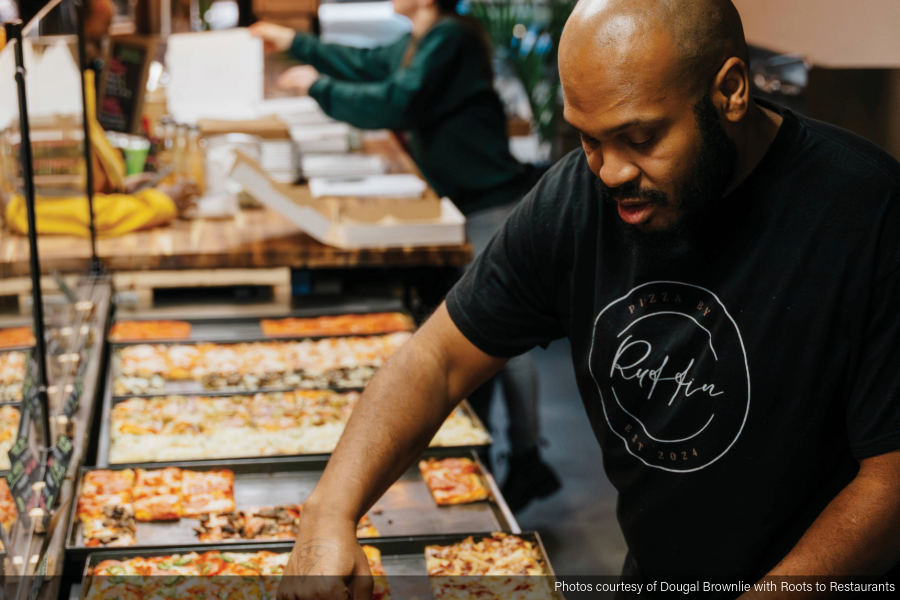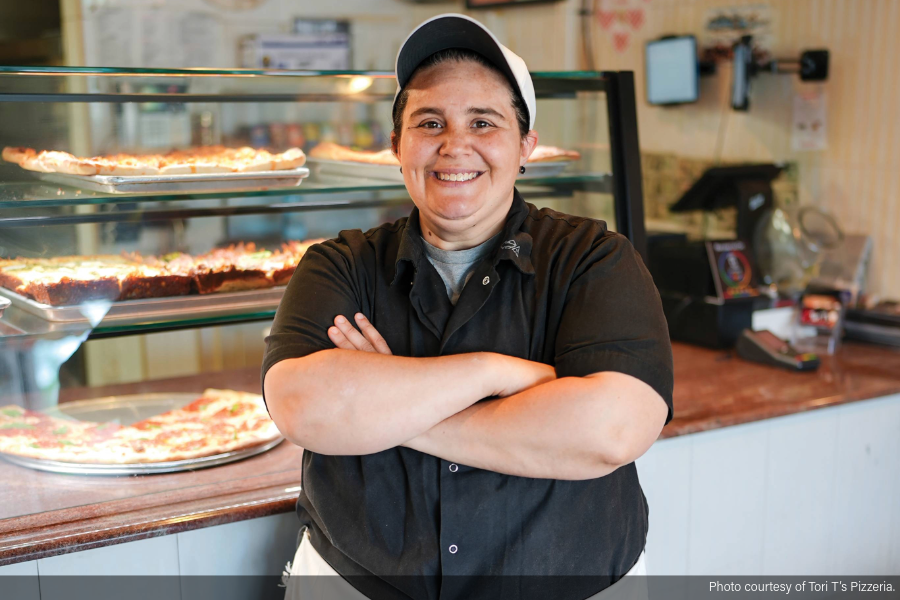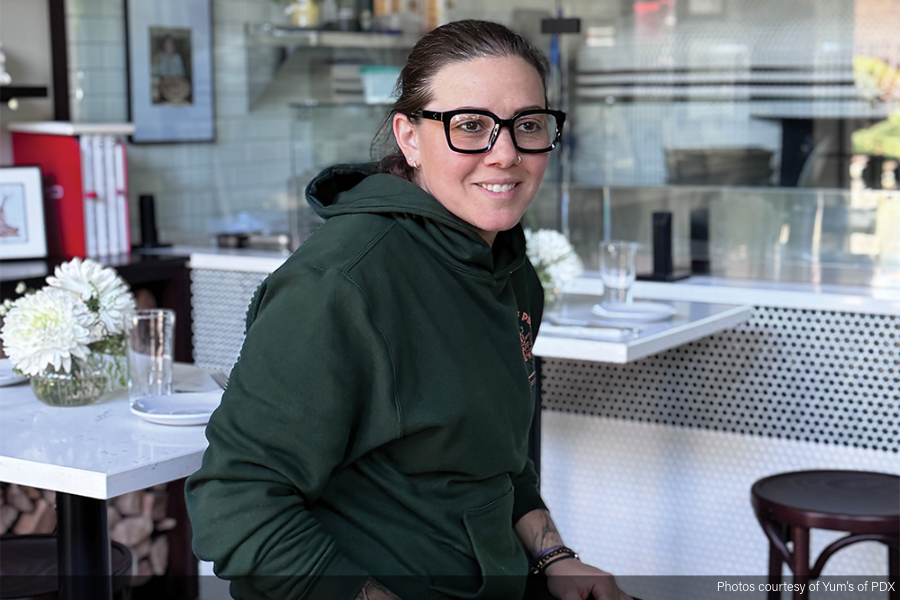
Dan Richer, chef owner Razza, Jersey City, New Jersey, will present a demonstration at Pizza & Pasta Northeast in October 2017.
Razza
Jersey City, New Jersey
The intimate pizzeria opened in 2012. Chef and Owner Dan Richer applies his culinary craft to Razza’s menu of artisan pizza and small plates with an emphasis on harnessing local ingredients.
Dan lets us in on the Razza concept and taking a product to the retail market
At Razza, we are craftsmen. We have an unwavering and intense dedication to creating better pizza each day. We focus so much of our time and energy on the finer details. We choose our ingredients carefully and we continuously hone our techniques.
The style of pizza is best described as artisanal. We are part of a new breed of American pizza in that we challenge common pizza production practices and we’re not confined by aiming for authenticity. We rely on Italian sensibility but not on imported Italian ingredients. For our pizza, we use American ingredients exclusively. We do not believe that a Neapolitan oven, San Marzano tomatoes, 00 flour and imported Italian olive oil are a requirement for stellar pizza. Instead, we use our taste buds to decide our ingredients — and I am convinced that incredible pizza can be produced in any oven. When developing our pizza, I broke down pizza as a whole into its individual components and determined the characteristics that I desired in my perfect pizza. This ended up being a list of 40 characteristics from the acidity and sweetness of the tomatoes to the crispness and aroma of the crust. I’ve spent the last 10 years trying to achieve these specific characteristics one by one. It’s still in progress and probably will be until I make my last pizza. That’s Razza’s concept: to make the pizza better today than it was yesterday.
Our company culture is something that we focus on constantly as well. Our core values drive our actions and steer our team in a positive direction. For brevity, I’ll just list two of our core values:
- Bring Joy. What we do has the power to bring joy to our guests and to each other. It is the reason we exist and is a source of immense pride for us individually and collectively. We get to make people happy!
- Growth. We teach and we learn from one another, recognizing we can always improve. We never take anything for granted. As individuals, we come from different places and have experienced different things, but we all possess the ability to learn and grow.
Taking a product to the retail market — Selling our butter at Whole Foods was an incredible opportunity, and I learned so much during the process from compliance to packaging to distribution. The team at Whole Foods was wonderful to work with and couldn’t have been more helpful. Financial projections and logistics are some of the most important things to consider before making the decision to bring your product to market. After taking into consideration the cost of goods, labor, packaging, distribution, insurance, etc., how many “units” do you need to sell for it to be worth the added responsibilities? If you have a product that is very inexpensive to produce and if you have tons of excess production space, it’s certainly worth considering. Start by testing the market and your production capabilities by selling retail in your restaurant and to other small businesses in the area. Your costs will be slightly higher on a per-unit basis but you will work out the kinks on a small scale.
 At Pizza & Pasta Northeast in October, Dan Richer will present a demonstration on naturally leavened pizza. Discover Dan’s three key tips to producing a great naturally leavened dough.
At Pizza & Pasta Northeast in October, Dan Richer will present a demonstration on naturally leavened pizza. Discover Dan’s three key tips to producing a great naturally leavened dough.






